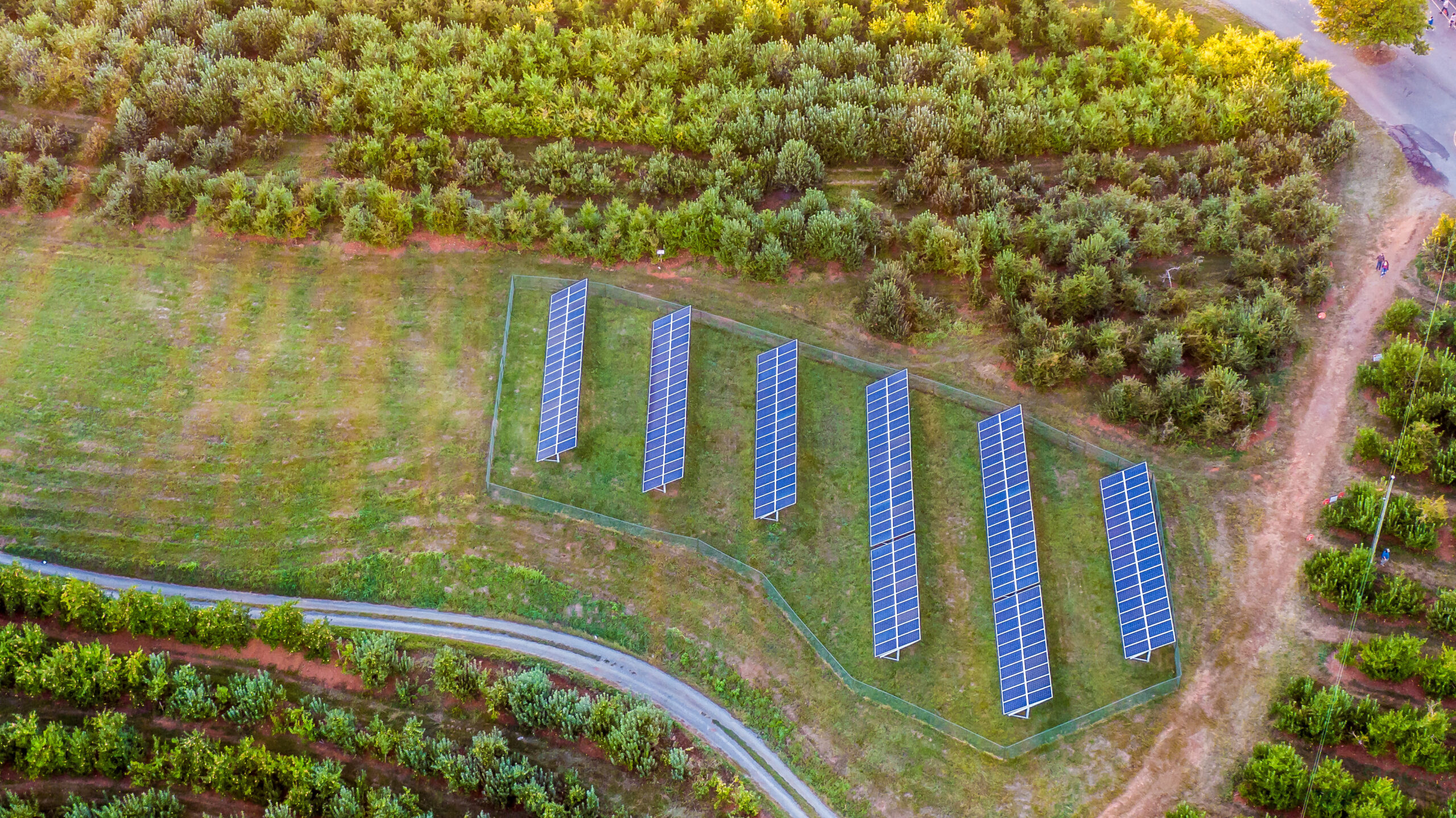New Laws: Making Shared Solar More Equitable

Carter Mountain Orchard – Photo by Sarah Stryker
Why Prioritize Shared Solar in Virginia?
Solar allows people to generate their own energy and decreases carbon emissions by replacing energy generated by dirty fossil fuel sources. Prior to shared solar, about half of Virginians could not produce their own solar energy because they live in homes that are rented, have too much shade, or not enough roof space. Shared solar programs allow these individuals to subscribe to a solar site where the benefits of the energy produced are shared by the subscribers.
Shared solar programs increase the number of Virginians that can use this clean and affordable energy because participation in a shared solar program does not require installing your own panels. This option is especially important for those who cannot afford upfront costs of solar panel installation
On July 1st, all bills that passed the 2024 General Assembly session became the law of Virginia. VCN advocated for a series of bills that build out solar programs, including two new laws that expand shared solar in the Commonwealth. Expanding shared solar programs will reduce climate pollution and further our equitable, affordable clean energy transition.
Specifically….
- HB 106/SB 253 (Delegate Rip Sullivan/ Senator Scott Surovell):
- Limits the minimum bill required to be a subscriber so that more people can participate in the program.
- Expands the amount of shared solar in Dominion Energy’s territory by 75%
- Encourages shared solar facilities to be built on rooftops, brownfields, landfills, and agricultural sites.
- Incorporates robust consumer protections
How Will Shared Solar Reduce Environmental Impact and Costs for Virginians?
Expanding shared solar programs will extend access to solar energy equitably for more Virginians while minimizing impacts on key natural resources, and facilitate eligibility for federal incentives established by the Inflation Reduction Act. These laws extend access to shared solar for low and middle income residents by limiting the minimum bill required to participate in the program. These improvements can encourage shared solar build-out by developers and participation by customers, contributing to a more robust renewable energy sector that can become more affordable and profitable as it grows.
Incentivizing construction on already compromised land (aka “brownfields”) and landfills is the best way to produce solar with minimal environmental impact. This practice makes these plots of land productive when they otherwise might be unusable, so instead of disrupting new spaces to build solar facilities, the projects can be done on land that is already impaired. Projects are also encouraged to be dual-use agricultural facilities, which means that solar panels are installed in the same space as crops, livestock or other agricultural activities.
Expanding shared solar also helps keep the Commonwealth on track to meet the Virginia Clean Economy Act’s target of a 100% carbon free electric grid by 2050. Shared solar is an essential part in decarbonizing Virginia’s electricity grid and meeting our climate goals. These developments mark an important step forward towards reducing carbon pollution and enhancing public health for all Virginians.
